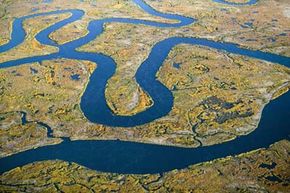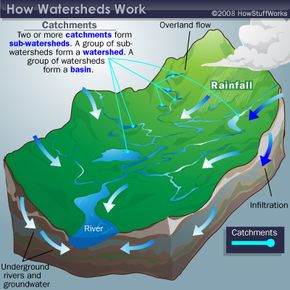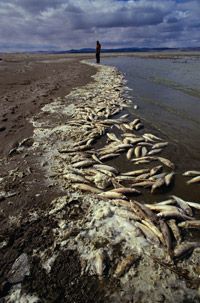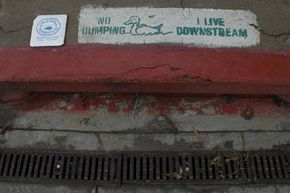Surely you've spent time cooped up at home during a rainstorm. Hours later, the land, streets and buildings outside look completely dry. Have you ever wondered where all that rain goes? We know that much of the water gets absorbed by the ground and by plants, but where does the rest of it end up? It eventually drains into the surrounding lakes and rivers, but it must get there via watersheds.
Advertisement
Where are these watersheds? Here's a hint: You're sitting in a watershed right now. The Environmental Protection Agency defines a watershed as any body of land that flows downhill into a waterway. Basically, "watershed" is a broad term used to describe how water flows across land to feed streams, rivers and lakes [source: Environmental Protection Agency]. All of these watersheds fit together like puzzle pieces to form our land masses.
All land masses feed into a body of water, whether it feeds into the Mississippi River or your backyard pond. Obviously, water cannot travel uphill, so all watersheds are determined by topography. That means if you live on one side of a ridge and your neighbor is on the other side, you live in different watersheds. That also means that watersheds vary greatly in size, depending on the highest points surrounding it.
A watershed can be thousands of square miles, or it can be a few acres draining into a pond [source: Environmental Protection Agency]. There are millions of watersheds in the world - 2,100 small ones in the United States alone [source: NatureServe]. However, a watershed is more than just a piece of land that collects the rainwater and dumps it into the river. Anything that ends up in a watershed ends up in a body of water, including pollutants like discarded motor oil or paint, or sediments from trees cut down due to construction. These and other pollutants can contaminate a water supply, erode the land surrounding the body of water and disrupt aquatic habitats.
Maintaining the health of our watersheds is vital to our ecology, but how does this affect you? Why should you care about watersheds? In this article, we'll explore watersheds and what they mean to you.
Advertisement




